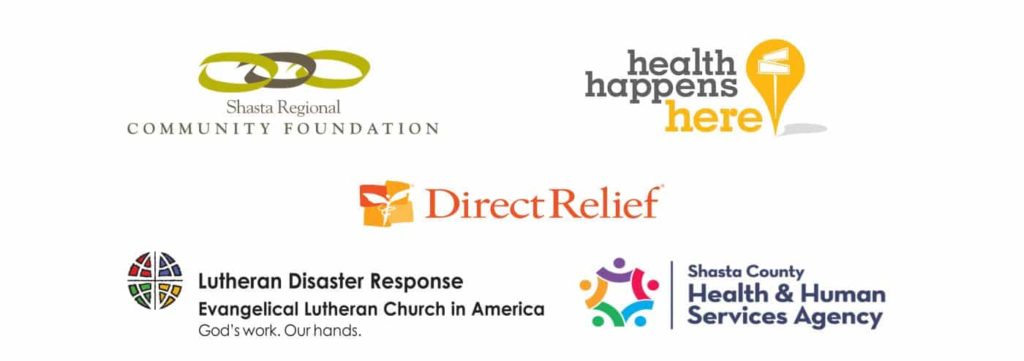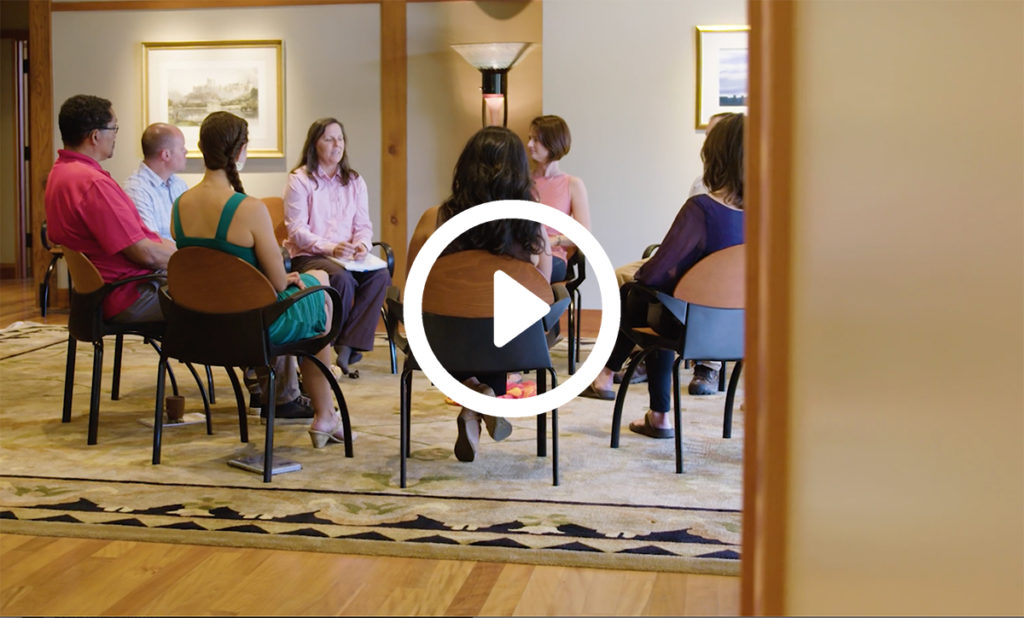To learn more about the Shasta Resilience Training and get involved locally, please visit this page.
In July, 2018 the Carr Fire swept across 290,000 acres over two counties, destroying over 1,000 residences and causing physical and psychological damage on a massive scale. The Carr Fire was followed by the Delta Fire and then the Camp Fire, exponentially compounding the physical and emotional toll. The Northern California Resilience Program addresses the immediate, pressing psychosocial needs stemming from the wildfires while also building local resilience and capacity to address future climate-related disasters and other major challenges facing the region.
While based in Shasta County, the program has a regional scope, creating systemic change across Northern California by working with key health and social service institutions in neighboring communities such as Butte, Siskiyou, Trinity and Tehama Counties.
In this dynamic program, which began October 2019, nearly 100 participants practiced evidence-based self-care tools for effectively addressing personal and professional stress after the fires and learned about The Center for Mind-Body Medicine’s evidence-based model to rebuild resiliency in the north state.
Over the course of this two-part professional training program, taking place October 2-5, 2019 and January 22-25, 2020, participants are gaining the skills to run community workshops and mind-body skills groups under the supervision of Center for Mind-Body Medicine faculty, and ultimately have the ability to reach over 3,200 people during the first year alone.
The program is closed and is not accepting applicants at this time, but if you are interested in learning about future programs, please contact us at shasta@cmbm.org.
Who Is Involved
All north state community members, first responders, clinicians, educators, non-profit workers, faith leaders, community volunteers, and other community leaders working with populations that have experienced loss or trauma (i.e fire survivors, foster children, homeless, substance abuse, domestic violence, etc) are welcome. We have developed guidelines to identify a diverse group of applicants who will be best positioned to work with local communities, institutions, organizations, or underrepresented populations in our region.
What Participants Will Learn
In large group lectures, participants learned the science of meditation, guided imagery, biofeedback, and autogenic training, and of self-expression in words, drawings, and movement. In CMBM’s groundbreaking Mind-Body Skills Groups, led by senior CMBM faculty, they then use these tools and share their experience with other trainees. With these tools in hand, participants then learn to deliver Mind-Body Skills Groups in their personal and professional communities while receiving ongoing coaching from CMBM faculty.
This evidence-based program is providing community members with the tools they need to understand and address the challenges that all of us face and to help others do the same. It has often been described by CMBM’s 6000 trainees as “life changing.”
Sponsoring Organizations
The Shasta Health Assessment and Redesign Collaborative (SHARC) has worked in cooperation with the Community Recovery Team (CRT) to bring this training to our area. Recognizing the significant emotional toll of the 2018 wildfire season, we are proactively building a foundation for community healing and resilience.
The Shasta Resilience Program is working with organizations and partners across our community and with The Center for Mind Body Medicine, whose curriculum is the foundation for the program. The vision for the Program is to develop our local capacity for healing, empower lay people with comprehensive tools, build the social connections that are the number one predictor of community resilience, and prevent the progression of stress and trauma into more serious social, mental, physical, and social impacts.
Funding provided by:

And the Nancy Driscoll Foundation
